“The ultimate wildlife documentary”: Prehistoric Planet press conference with Mike Gunton, Tim Walker, Jon Favreau and the animation team
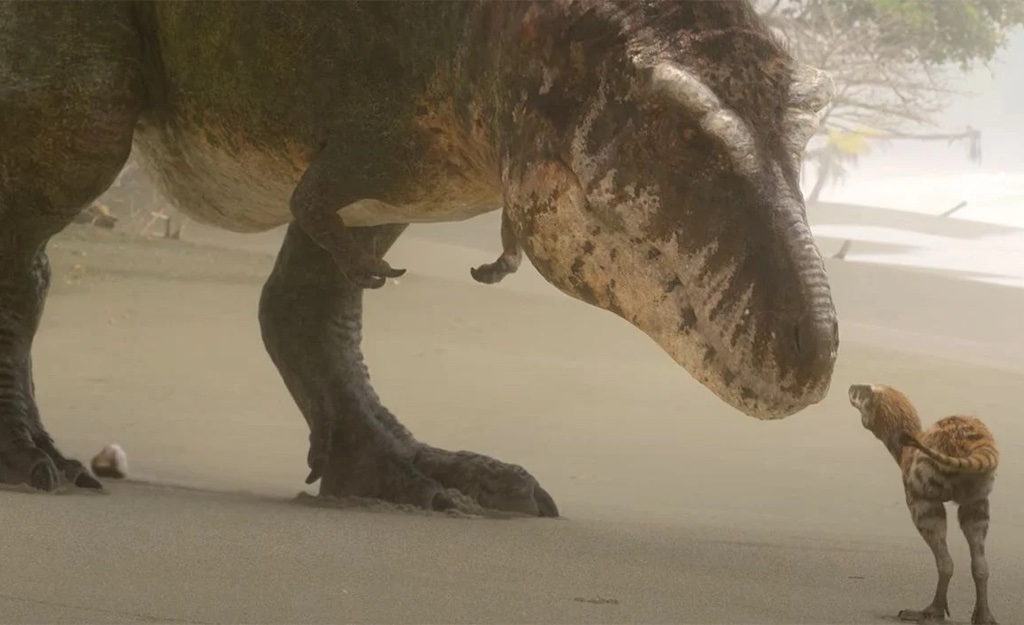
Prehistoric Planet, premiering on Apple TV+ over the course of five nights from 23rd May, is a series of natural history that will feel deeply familiar to fans of the genre: stunning location work, beautifully captured, with an arc of scientific and cinematic authenticity, gently guided by the soothing tones of one Sir David Attenborough. However, the subjects of Prehistoric Planet, being creatures assigned to extinction, presented unprecedented challenges to longtime Attenborough collaborator, executive producer Mike Gunton. The Upcoming had the good fortune to be taken through a firsthand account of these hurdles, and how they were overcome, as well as what we can expect from the Apple TV+ series, by Gunton, co-executive producer Jon Favreau and showrunner Tim Walker.
Poetically explaining the inception of the idea for Prehistoric Planet, Gunton began: “Almost exactly ten years ago I was stood on a mountain side with David Attenborough doing the introduction to the BBC series Africa, and in the opening lines David says, “Nowhere on planet Earth does wildlife put on a greater show” – which is certainly true of today. But as he was doing that, I was thinking: has that always been true? Was there ever a time when wildlife maybe did put on a greater show? And I thought: there is! It was the time of the dinosaurs. So could you take everybody on that mountain side – all the crew, all that kit, all that expertise, and Sir David Attenborough – put them in a time machine, fly them back 66 million years ago and effectively make a wildlife series in that time. And so that was the idea – Planet Earth, 66 million years ago.” Gunton also explained the gap between inception and realisation of the concept: “Why now? Well, the science was doing interesting things. All the scientific community were shifting their emphasis away from just looking at bones. They were looking at behaviour. And of course, that’s what we do in naturalistic filming.”
The concept of “Planet Earth 66 million years ago” of course required the use of technologies that are not inherent to the world of nature documentary filmmaking. The lightbulb moment, however, which acted as a catalyst for the realisation of the project, according to Gunton, was his meeting with Jon Favreau: “[Favreau] started showing me some of the stuff from his forthcoming film, which was Lion King, and within about three minutes our minds had met. We were talking about how we do this, all the approaches. We were both in the same world and we thought: we’re off. We’ve got to do this together and that was the final part, and that’s why we’re now here.”
Favreau, appearing via video link, further illuminated the nature of this partnership, referring back to the process of making The Lion King and the influence that the Gunton’s brand of nature documentary had on it: “Our Rosetta Stone (when making The Lion King) was the Planet Earth series, and that was the gold standard for how to present wildlife in nature. The naturalism, the way that the fur was rendered, the way it was photographed, the lighting, the camera movement, the camera equipment that they used to capture animals in nature. This is something that we reverse engineered”. Favreau also referred to “cultural differences” in the meeting of methods between traditional nature documentary filmmaking and feature animation: “Cultural differences as it refers to cinematic approach – how do you write for a documentary? How do you write for animation? To what extent do you storyboard? When do you start looking at these creatures in 3D? How do you approve the designs?”. Speaking on the role of Attenborough, Favreau described it as “the last piece of the puzzle”: “This is all a big magic trick. All the visual effects, all the filmmaking has always been to present something cinematically; you’re always trying to create reality, but if you look behind the curtain there are artificial elements to it. Even on a regular film shoot, you know there are lights just off-camera that you want the audience to forget. You want them to believe that what they’re looking at is real. And, for this, it was amazing how much having even a temporary track of Sir David Attenborough’s voice completely sold the magic trick.”
Returning to the concrete idea that Prehistoric Planet was trying to execute, Gunton went on to discuss the authenticity with which everyone involved was trying to imbue the project: “One of the words you’ll hear us say probably quite a lot is ‘authenticity’, and that is what’s been driving us – both scientific authenticity but also filmmaking authenticity, as Tim said. The grammar of what we do has to be absolutely in keeping with ourselves. That meant it’s been an interesting journey for all of us, because when you make wildlife films, you are inevitably constrained by all sorts of things you know. As Tim says, you can never ask the camera person to go and stand in front of a T. rex because he would eat them! So you have to stand back… so those shots you sometimes see in dinosaur shows, the shots the cameras will get – impossible! So if it suits you, do that. You’re out of our grammar. The other thing is that you’ve only got one camera position when you’re shooting this. You have a camera person or camera one and they can’t fly around all over the place, whereas in the CG world you can put a camera anywhere, so you have to resist the temptation to put the camera anywhere because you couldn’t if you were filming it for real. So that rigour – almost deliberately making it hard for ourselves – has been a really important part of this because it does reinforce and reflect what we try and do when making a wildlife film”.
In attempting to stay true to the “grammar” of natural filmmaking that audiences have come to recognise and expect from such documentaries, the challenges of location filmmaking were as real as ever. As showrunner Tim Walker explained: “Although the animals are CG, the majority of the – what we call the back plates, the real-world locations and filming this type of thing still comes with lots of challenges, so Dom [producer for the Deserts episode] filmed this last year, I think, wasn’t it? And then went on to film in various deserts around the world, and we filmed in a lot of different countries. Despite lockdown, we were able to get to quite a few places. And just because there are no animals there to film doesn’t mean you don’t go through hardships. There’s a clip in the trailer that shows a large gathering of dinosaurs coming together. That was filmed out in Namibia and the dinosaurs that are involved in the shots are so big that the space required to put them in had to be vast. So Dom spent days looking for these locations and, when he finally found one, they had to get the camera position, get all of the reference material that we use to make these films in place, and then retreat back over a quarter of a mile over steep sand dunes to be able to get the dinosaurs in focus in in the lens. The crew came across deadly snakes, the footprints of lions… and this is true for all the team that film around the world.”
The music for Prehistoric Planet was composed by Hans Zimmer. When asked about the importance of Zimmer’s score in creating a cinematic experience, Gunton had this to say: “Working with Hans has been an interesting history, because he had never worked with us in natural history filmmaking until Planet Earth II – that was the first project we worked together on, and it’s interesting that he’s now become a bit of a watchword. It’s almost like, you know, if you’re going to make the ultimate wildlife documentary, have the natural history unit: David Attenborough and Hans Zimmer. And so this is an ultimate – you gotta have those three ingredients, so he’s a big part of it. And of course, his enthusiasm for the content. He’s seen everything and a lot of animation and, you know, I was saying earlier about the people who are going to give you the tick you’ve done well. And when he saw this he just went, ‘I’ve never seen anything like this guys, you’ve knocked it out of the park.’”
Matthew McMillan
Prehistoric Planet is released on Apple TV+ on 23rd May 2022.
Watch the trailer for Prehistoric Planet here:

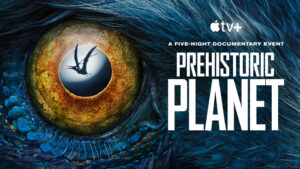

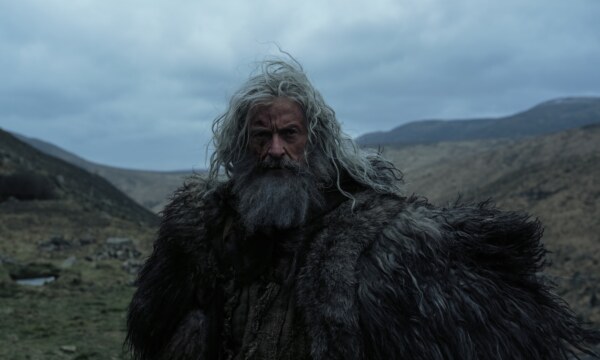
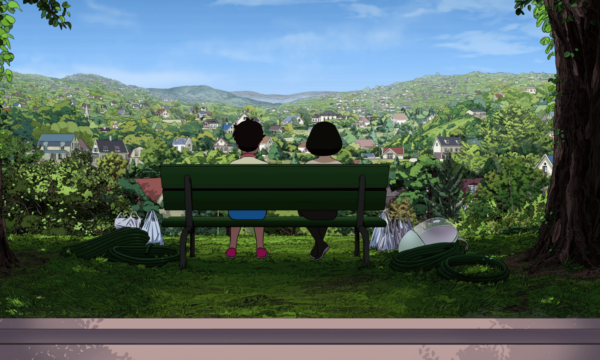
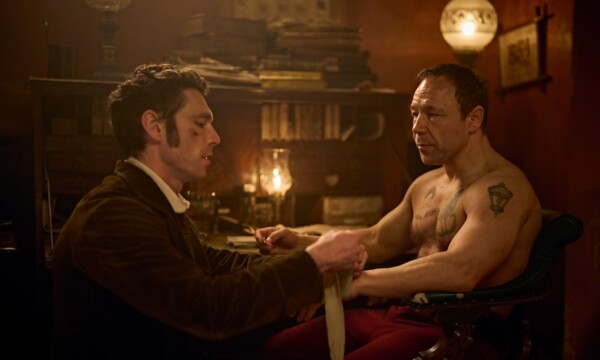
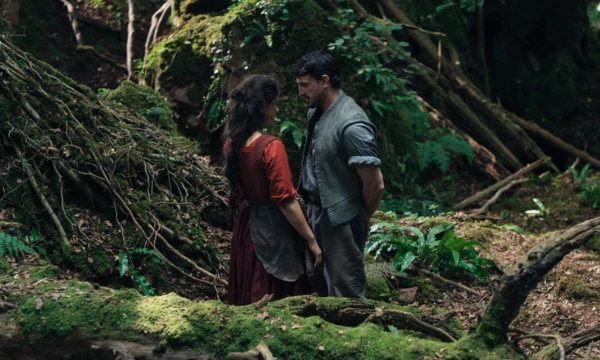

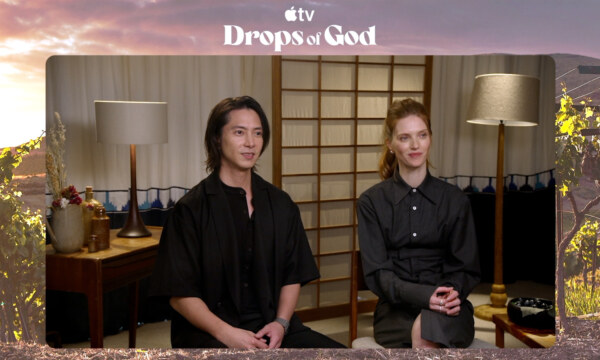
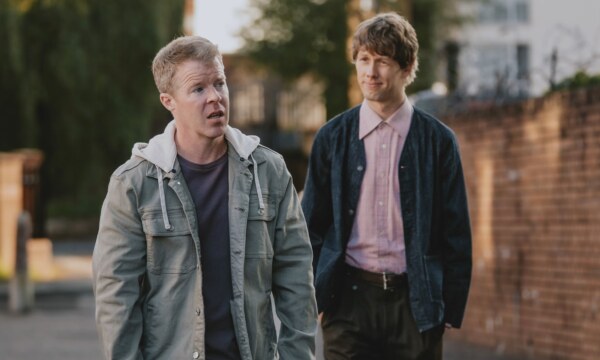



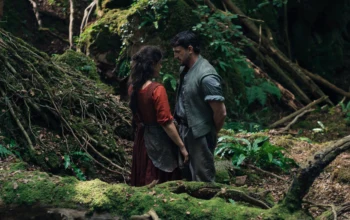

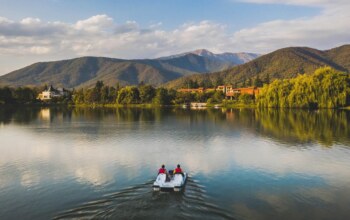

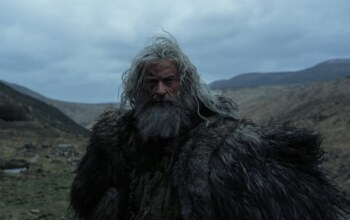
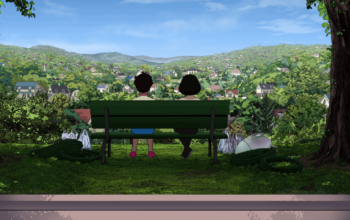





Facebook
Twitter
Instagram
YouTube
RSS